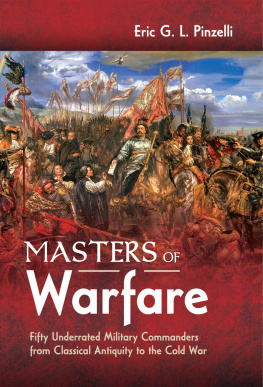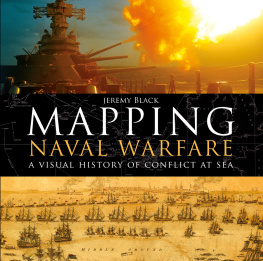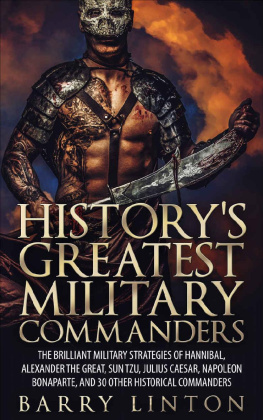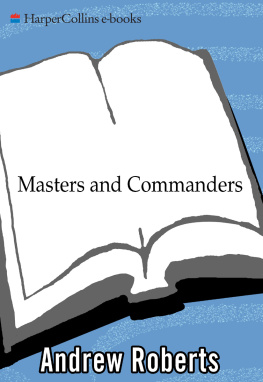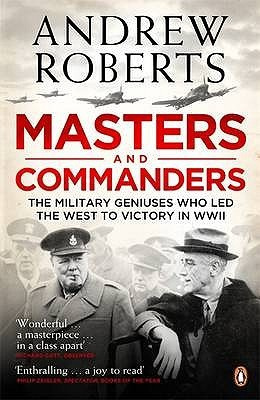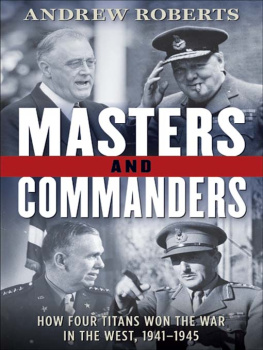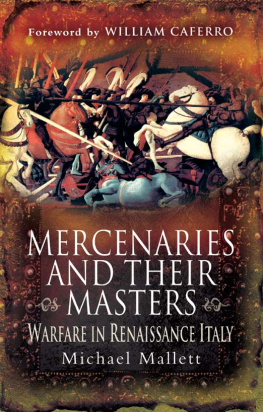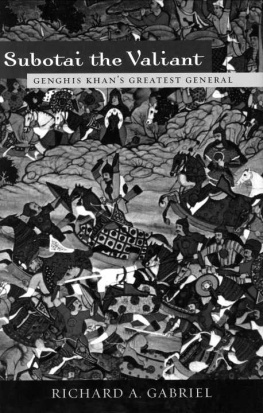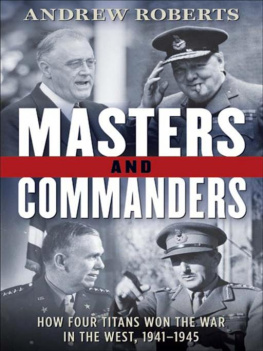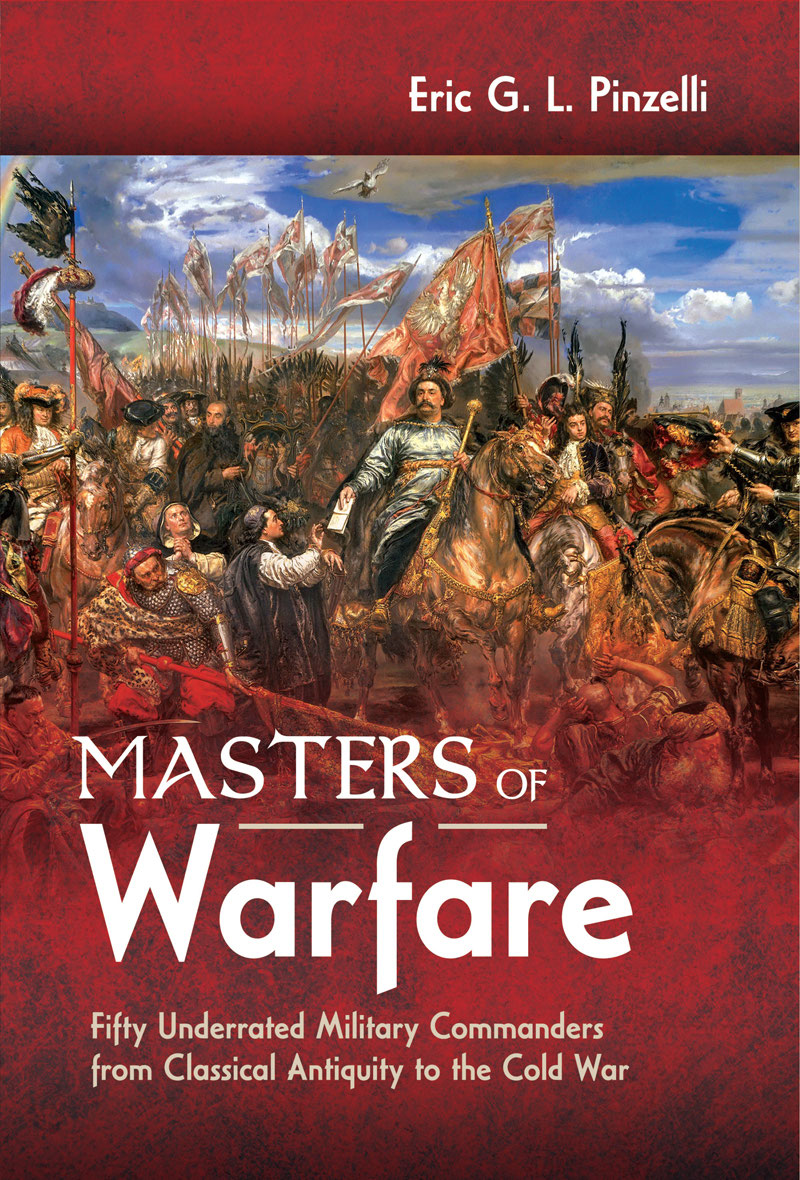Masters of Warfare
Masters of Warfare
Fifty Underrated Military Commanders
from Classical Antiquity to the Cold War
Eric. G. L. Pinzelli
First published in Great Britain in 2022 by
Pen & Sword Military
An imprint of
Pen & Sword Books Ltd
Yorkshire Philadelphia
Copyright Eric. G. L. Pinzelli, 2022
ISBN 978 1 39907 012 6
EPUB ISBN 978 1 39907 013 3
MOBI ISBN 978 1 39907 013 3
The right of Eric. G. L. Pinzelli to be identified as Author of this work has been asserted by him in accordance with the Copyright, Designs and Patents Act 1988.
A CIP catalogue record for this book is available from the British Library.
All rights reserved. No part of this book may be reproduced or transmitted in any form or by any means, electronic or mechanical including photocopying, recording or by any information storage and retrieval system, without permission from the Publisher in writing.
Pen & Sword Books Limited incorporates the imprints of Atlas, Archaeology, Aviation, Discovery, Family History, Fiction, History, Maritime, Military, Military Classics, Politics, Select, Transport, True Crime, Air World, Frontline Publishing, Leo Cooper, Remember When, Seaforth Publishing, The Praetorian Press, Wharncliffe Local History, Wharncliffe Transport, Wharncliffe True Crime and White Owl.
For a complete list of Pen & Sword titles please contact
PEN & SWORD BOOKS LIMITED
47 Church Street, Barnsley, South Yorkshire, S70 2AS, England
E-mail: enquiries@pen-and-sword.co.uk
Website: www.pen-and-sword.co.uk
or
PEN AND SWORD BOOKS
1950 Lawrence Rd, Havertown, PA 19083, USA
E-mail: Uspen-and-sword@casematepublishers.com
Website: www.penandswordbooks.com
Contents
Introduction
Military Leadership Through the Ages
A prince ought to have no other aim or thought, nor select anything else for his study, than war and its rules and discipline; the prince should read histories, and study the actions of illustrious men, to see how they have borne themselves in war, to examine the causes of their victories and defeat, so as to avoid the latter and imitate the former; and above all do as an illustrious man did, who took as an exemplar one who had been praised and famous before him, and whose achievements and deeds he always kept in his mind, as it is said Alexander the Great modelled himself on Achilles, Caesar on Alexander, Scipio on Cyrus the Great.
Niccolo Machiavelli, The Prince
A handful of first-class commanders such as Hannibal, Alexander the Great, Caesar, Genghis Khan, Timur, Pizarro, Friedrich II, Souvorov, Nelson, Napolon and Patton, are the objects of countless biographies. Their universal fame and the sheer volume of comprehensive studies pertaining to these Gods of War overshadow untold numbers of other talented generals and admirals who have also had a profound impact on history and by their actions shaped mankinds destiny.
When it comes to the knowledge of history, mass culture, instrumental in shaping public perception, has accentuated this tendency: people want to learn more about what they have already become aware of through the internet, the film industry or video games. This leads to an obvious causal nexus: industries, obeying the cardinal axiom of supply and demand, in turn produce more of the same material. These last decades, the focus has been overwhelmingly on the Second World War alone, this phenomenon increasingly narrowing public acquaintance with world history, instead of expanding it. Moreover, current creations highlight and glorify national accomplishments to the detriment of factual history that is often far from Manichean, but complex and nuanced.
The present study follows a diametrically divergent path, introducing warfare through a selection of distinguished leaders from Classical Antiquity to the Cold War. This represents an attempt at a balanced, continuous, global understanding of war through time. The emphasis given to any given military leader is suggestive and highly dependent on each persons perspective according to their individual background. In the sample of underrated commanders introduced in this book, some may be more or less familiar to the reader. Fundamentally, this selection follows the criterion of legacy: their geopolitical impact on local or continental affairs, their distinctive contribution(s), their long-term influence on warfare and human history as a whole.
War, fundamentally destructive, immoral and unethical, has been mankinds most tragic, resource-consuming activity since the dawn of time. War is certainly not a mere symptom, but rather a fundamental force driving human history. It is an intimate part of the never-ending cycle of life and death: through war, civilizations arose, empires were dismembered, populations migrated, new states emerged. As three things are necessary in war, money, money and more money (Raimondo Montecuccoli), war was always intimately linked to the inevitable development of more efficient economies, ideas, industries and government. As a consequence, it has influenced the whole direction of academic science, technological progress, production and governance. We may lament it, but the fact remains undeniable. Learning from past experience should be the pragmatic response.
Combat being an individuals ultimate test of valour, until recently the definition of heroism itself was pretty much universal. In most cultures it required rising to a challenge, sometimes making the ultimate sacrifice, regardless of the then applicable moral standards. Clearly, moral values are subject to change over time. Invading a foreign land, capturing its cities and enslaving its people are, for the most part, no longer acceptable, even less glorious. Some of these fifty leaders undoubtedly qualify as legitimate heroes, others as full-blown mass murderers, regardless of whether or not they were forced to take up arms to defend their people, or chose to fight motivated by greed or personal advancement. In any case, some of these villains may be regarded as proper heroes in a different culture, since moral standards are not universal.
In examining their achievements, each of them qualifies as a highly effective commander, displaying superior leadership skills, performing superb personal feats and, when required, raising the spirits of their men in order to perform seemingly impossible tasks. Lao Tzus Tao Te Ching (sixth century BC) lays down that an effective leaders behaviour requires both strength and flexibility; leading by personal example is advocated. US Admiral William Bull Halsey once said, There are no great men, there are only great challenges. According to Gary Yukl (Leadership in Organizations, 1981), leadership is a process of influencing others to understand and agree about what needs to be done and how to do it. The leaders in our selection range from excellent tacticians to supreme strategists, in some instances happily combining both traits.
In contrast to John Keegans standpoint as spelled out in The Face of Battle, it is argued here that the role of the individual commander is the key factor determining the eventual outcome of any military operation, more important than numerical superiority, logistics, morale, discipline, and of course weaponry. As General Matthew Ridgway put it, the success of a unit is merely a reflection of the qualities of leadership possessed by its commander. The large number of real-life examples that follow consistently demonstrate this point.

